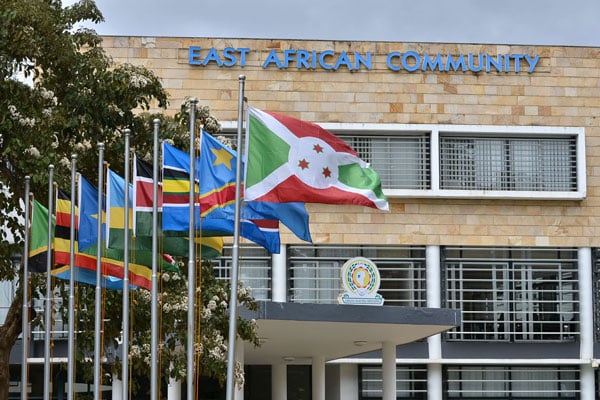East African court back in session: Karua, Sonko cases on the docket

The East African Court of Justice.
What you need to know:
- The EACJ First Instance Division Court has the majority of the cases filed by citizens of Kenya, Tanzania and Uganda.
The East African Court of Justice (EACJ) kicked off its September session in Arusha this week after taking a break since May due to lack of funding.
The judges started working on September 16, hoping to clear a backlog of cases by October 11.
“Due to financial challenges, the court was forced to call off its sessions in May and June, 2024. This has contributed to the increasing case backlog which stands at over 260 pending matters,” a statement from the court said.
The EACJ First Instance Division Court has the majority of the cases filed by citizens of Kenya, Tanzania and Uganda.
The session, which runs to October 11, will consider 25 matters, including 15 hearings of applications and main references.
Among the cases is the one of Kenyan opposition leader Martha Karua against the government, which will come up on September 24. Karua alleges that the Independent Electoral and Boundaries Commission of Kenya declared William Ruto president after the 2022 general election in violation of the Constitution and laws of Kenya.
She also alleges that the Supreme Court presidential dispute resolution process failed to properly adjudicate the resultant dispute in accordance with the Constitution and laws of Kenya.
A matter pitting DR Congo and Rwanda over the insecurity in eastern Congo will come up on September 26.
The court will also hear a petition filed by former Nairobi Governor Mike Sonko, disputing his impeachment in 2020.
Meanwhile, the regional court is still facing a shortage of judges in the First Instance Division, which requires three judges from Kenya, South Sudan, and Somalia after the retirement of Deputy Principal Judge Dr Charles Nyawello from South Sudan and resignation of Charles Nyachae from Kenya. A judge from Somalia is yet to be appointed.
“It is expected that these vacancies shall be filled with the appointment of Judges at the next Summit of Heads of State in November 2024,” the Court said.





